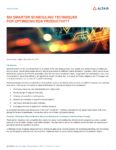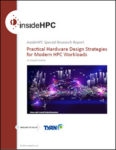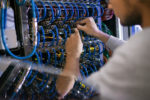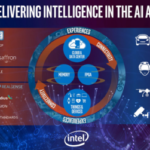Workload management plays a crucial role in helping design teams share limited resources, boost simulation throughput, and maximize productivity. In this paper, Altair discusses six valuable techniques to help improve design center productivity. By adopting these techniques and products in the Altair® Accelerator™ portfolio, organizations can realize higher levels of efficiency and performance and dramatically improve productivity with smarter workload scheduling.
Atos HPC Software Suites
This whitepaper, “Atos HPC Software Suites,” from our friends over at Atos explains the main features and functionalities of the Atos HPC Software Suites and shares the company’s vision for the significant evolutions coming next in the HPC software arena.
Atos HPC Software Suites
This whitepaper from our friends over at Atos explains the main features and functionalities of the Atos HPC Software Suites and shares the company’s vision for the significant evolutions coming next in the HPC software arena.
Practical Hardware Design Strategies for Modern HPC Workloads
Many new technologies used in High Performance Computing (HPC) have allowed new application areas to become possible. Advances like multi-core, GPU, NVMe, and others have created application verticals that include accelerator assisted HPC, GPU based Deep Learning, Fast storage and parallel file systems, and Big Data Analytics systems. In this special insideHPC technology guide sponsored by our friends over at Tyan, we look at practical hardware design strategies for modern HPC workloads.
Exascale for Everyone
The exascale hype has been gaining a lot of steam in the press lately, and for good reason. Ever since the petascale barrier was broken in 2008, technology users, companies and research institutions have set their ‘sites’ on the holy grail of computing milestones. In this guest article, Matt Ziegler, Director HPC & AI Product Management, HPC Product Marketing at Lenovo, explores the evolution of and potential of exascale computing.
AI Hardware to Support the Artificial Intelligence Software Ecosystem
Balance ratios are key to understanding the plethora of AI hardware solutions that are being developed or are soon to become available. This post from an insideHPC Special Report explores AI hardware options to support the growing artificial intelligence software ecosystem.
Solving AI Hardware Challenges
For many deep learning startups out there, buying AI hardware and a large quantity of powerful GPUs is not feasible. So many of these startup companies are turning to cloud GPU computing to crunch their data and run their algorithms. Katie Rivera, of One Stop Systems, explores some of the AI hardware challenges that can arise, as well as the new tools designed to tackle these issues.









